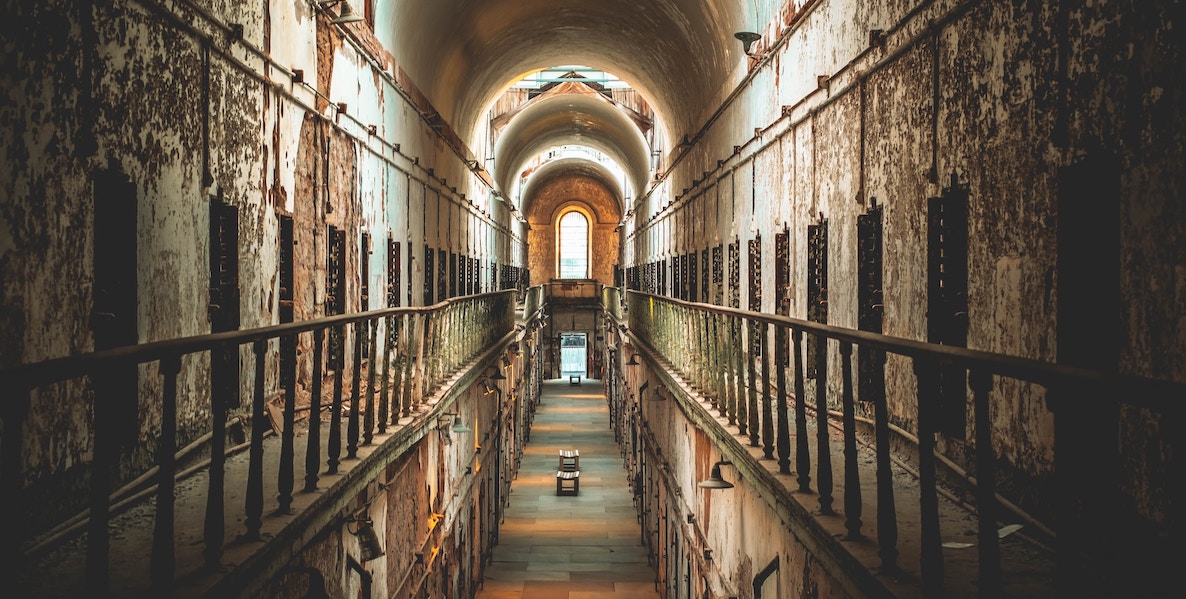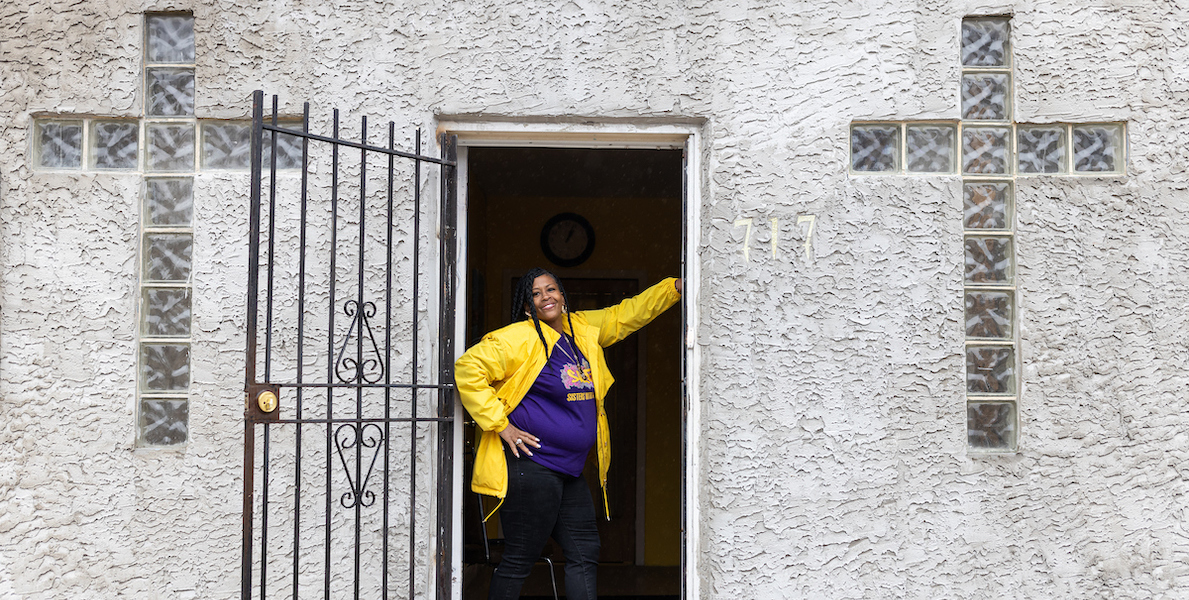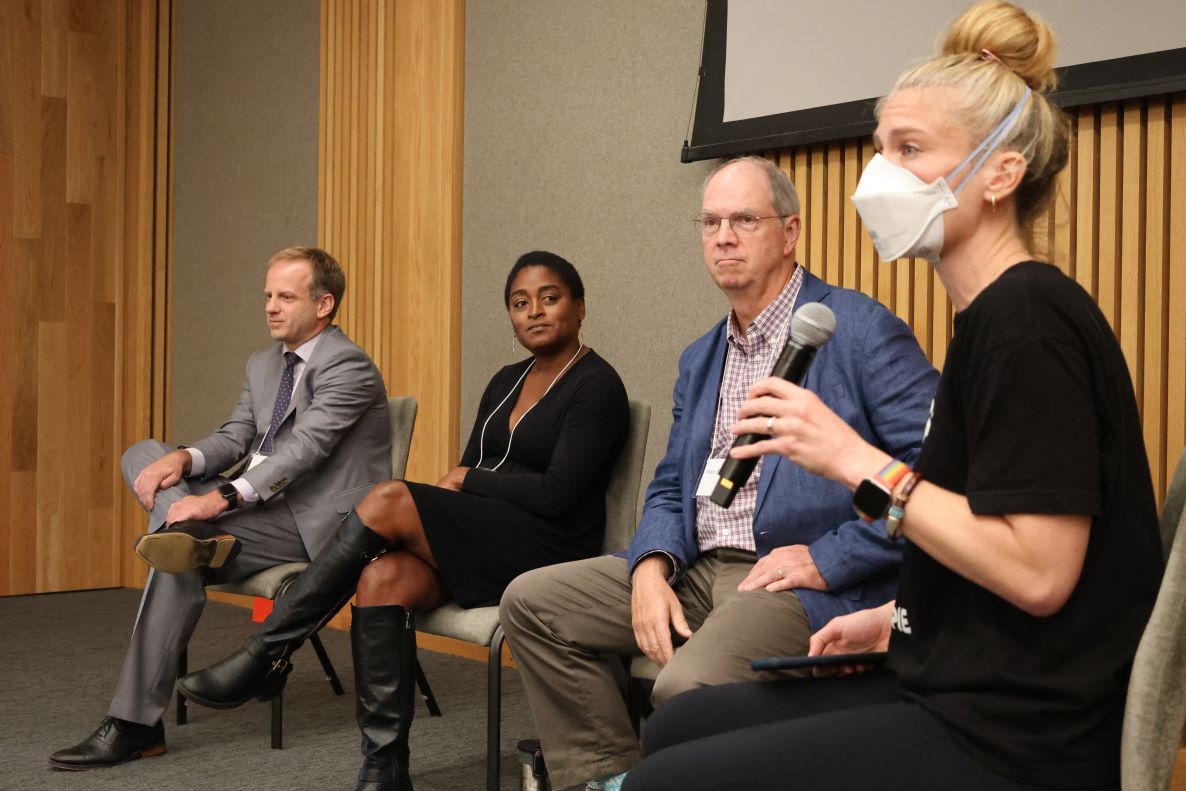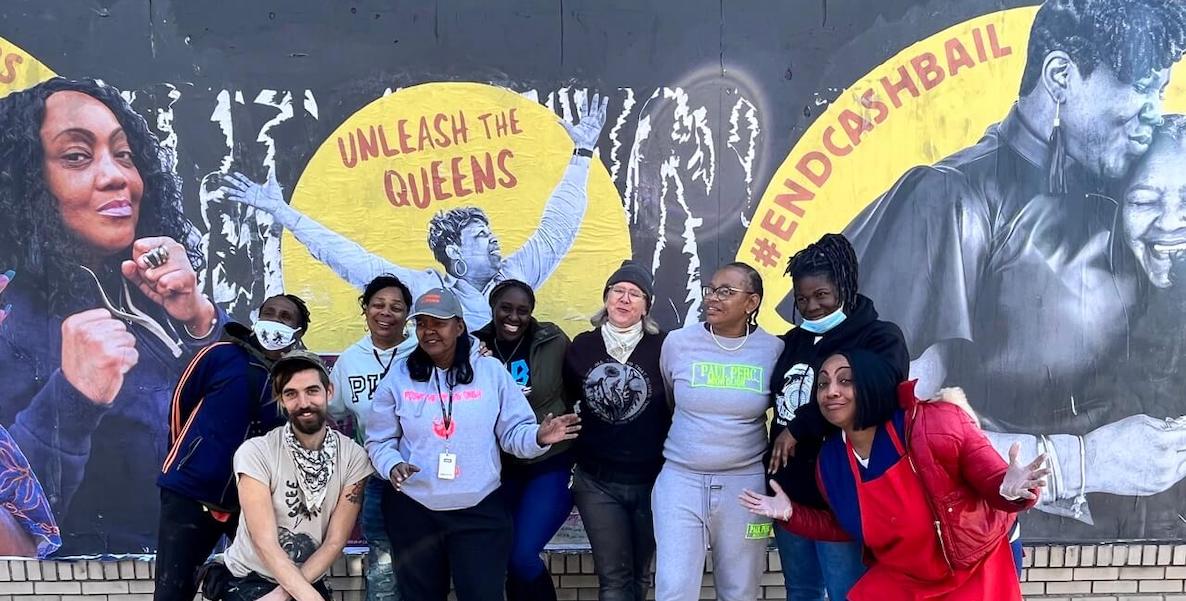Dr. Charlotte Brickhouse has witnessed the failures of Philadelphia’s criminal justice system firsthand.
As an educator who works with special education students, she’s seen how the system can fail people with disabilities. Students with disabilities are three times more likely to be arrested than those without, according to the ACLU. It’s something that’s always bothered Brickhouse. “A lot of students with special needs are becoming a part of the criminal justice system — more than I am comfortable with,” she says.
The issue isn’t just professional. Brickhouse’s five brothers have been involved with the criminal justice system. “I witnessed the criminal justice system fail them and treat them unjustly,” she says. “I was determined to become an advocate to reimagine and create a system that is fair and just for all.”
Today, Brickhouse is doing that work as a member of the City of Philadelphia’s Community Advisory Council (CAC), a group of volunteers who advise the City on its criminal justice reform policies.
Launched in 2019, the CAC is one of numerous reforms that have helped reduce Philly’s jail population by 41.3 percent since 2016. Next year, the CAC plans to push several new reforms targeted at how the City manages house arrests and mental health conditions in its jails.
Starting the CAC
When the CAC was formed in October 2019, the City of Philadelphia was four years into the MacArthur Foundation Safety and Justice Challenge, a program that helps cities and counties across the country fund and implement criminal justice goals.
When Philly first received the grant, Philly’s jails were extremely overcrowded. The jail system was designed to hold 6,500 people, but in 2015, more than 8,000 people were incarcerated. By 2016, the City faced five class action lawsuits due to over-high jail populations. One of the lawsuits, from 2008, claimed that more than 2,000 incarcerated people were confined three to a cell, in a practice known as triple celling. City officials considered building a new jail facility to manage what seemed like ever-increasing populations.
Reducing jail populations can help return people to their communities, where they can live as productive members of society. Per data from the MacArthur Foundation, three out of five people incarcerated in America’s jails haven’t been convicted of any crimes and nearly 75 percent are in jail for nonviolent traffic, property, drug or public order offenses.
“We want to make sure that we are intentional about decreasing the jail population and making sure that we also decrease recidivism in the city.” — Dr. Charlotte Brickhouse
Within two years, Philly reduced its jail population by 18 percent — a reduction large enough to shelve plans for a new, larger correctional facility to replace the crumbling House of Corrections. Instead, in 2020, the City was able to shut that facility down.
In 2019, the City created the CAC, in an effort to engage community members in their criminal justice reform efforts — something the MacArthur Foundation encourages all Safety and Justice Challenge participants to do. The goal is that their experience with the criminal justice system provides perspectives that aren’t in the data the City has used to drive many of its reforms.
“Data only tells part of the story and stakeholders can look at the data, can perform robust analysis and can come up with a lot of strong takeaways,” says Julie Wertheimer, project director of public safety performance and mental health and justice partnerships with The Pew Charitable Trusts. Wertheimer worked for the City of Philadelphia’s Offices of Public Safety and Criminal Justice between 2013 and 2019.
“If that data is publicly shared, there may be important insights that CAC members and other members of the public can share back to stakeholders that we may not realize but they may because they see what’s going on in their community.”
One hope is that the CAC will help the City reduce racial and ethnic disparities in its jail population, which have persisted even as the city has slashed the number of incarcerated people. Though Black Philadelphians comprise 40 percent of Philadelphia’s population, they accounted for more than 72 percent of its jail population in 2022. Philadelphia is one of four sites to receive additional funding to reduce racial and ethnic disparities in its jail population from the John D. and Catherine T. MacArthur Foundation.
The CAC is led by two co-chairs, Brickhouse and Reverend Dr. Michelle Anne Simmons, who started the nonprofit Why Not Prosper after being incarcerated herself as a young woman. The organization provides housing for women experiencing homelessness or those recently released from prison.
“We are one of the only cities that has been able to reduce our jail population by 40 plus percent. So it’s something that we’re very proud of. We know that the rest of the nation is looking to us for solutions.” — Dr. Charlotte Brickhouse
The group is currently focusing its efforts on five priorities: mental health, early bail review, community engagement, jails and youth service, and juvenile justice. Volunteers serve an initial two-year term on the committee with the option of serving an additional two years, though the idea is to have a regular influx of new voices and perspectives. Current members include attorneys, criminal justice reform activists, and others who have family involved in the criminal justice system or have been involved themselves.
For members, it’s an opportunity to “really advocate for many of those who are voiceless,” Brickhouse says.
Policy recommendations plus community education
While it’s involved in several initiatives, the CAC’s role is most significant in two areas: government and policy work, and community engagement.
In 2020, after Covid started impacting Philly’s jails, the CAC quickly worked on recommendations for how the criminal justice system should manage the pandemic, including recommending virtual hearings and visitation options, expanding early bail review and releasing elderly, high-risk and medically-fragile people from jail. A spokesperson for the City’s Office of Policy and Strategic Initiatives for Criminal Justice and Public Safety says the CAC’s recommendation to reduce the local jail population contributed to a “strong sense of urgency” around the issue of reducing the jail population at the heart of Covid. The City ended up releasing more than 200 people incarcerated for nonviolent crimes during the pandemic.
The CAC was also critical to the way the City has operated the Police Assisted Diversion Program (PAD). Through PAD, specially trained police officers direct people who have committed low-level, non-violent crimes — including drug offenses, sex work or retail theft — to social services programs rather than arresting them. Those program providers then tailor their services to each individual’s needs to prevent them from committing crimes again.
When PAD launched in select neighborhoods, members of the CAC pointed out that this scattershot approach could lead to inequalities in who was offered a diversion rather than being arrested. The committee urged the City to expand PAD so that it was active in all parts of the city. PAD is now operational citywide, Monday through Friday.
As part of its community engagement efforts, the CAC is required to hold six public meetings and six events each year. Events have ranged from community days providing block party-like activities for children and families, to panel discussions about legal representation. As part of its work, the CAC has also given out 35 microgrants, totaling $200,000, to local activist and nonprofit organizations involved in early intervention and criminal justice reform work.
“We want to make sure that we are intentional about decreasing the jail population and making sure that we also decrease recidivism in the city,” Brickhouse says. “There’s so much misinformation and miseducation as it relates to the criminal justice system. We want to make sure that people have this information so that they are empowered and that they become advocates for themselves.”
Bringing needed perspective
Part of what makes the CAC unique is its power to influence policy. Though many cities and counties have similar volunteer groups, many local governments often have little incentive to listen or respond to the volunteers’ recommendations.
In Philadelphia, the City must respond to any CAC policy recommendation within 14 days, though at times it has suggested amendments or changes based on what it can feasibly implement. In those cases, the City explains to the CAC why they can’t implement a recommendation and they work together to consider ways it can be modified. With the PAD, for instance, the City agreed to scale the program citywide — as the CAC recommended — but only to do so five days a week, citing limited resources. In 2024, the program will expand to Saturdays.
Alongside the CAC recommendations, the City has also made its criminal justice data public. Each month, it publishes a report that tracks the progress toward Safety and Justice Challenge goals, while the Philadelphia District Attorney’s Office has created a comprehensive, public data dashboard that tracks the office’s efforts and the criminal justice system.
Amy Bach, founder and CEO of the nonprofit Measures for Justice, which works with cities and counties to create community advisory boards (CABs) similar to the CAC, says having such requirements around the recommendations and public data is critical for citizen groups to engender trust and credibility.
“What we want to do is to hold them accountable,” Bach says. “You need the public to look at the data and make public, data-driven goals.”
Bach and other members of her team said they don’t know enough about Philly’s CAC to comment directly on its work, since they don’t partner with Philly. But she did detail three key components that community-driven criminal justice reforms need: public data, a volunteer board of stakeholders who have experience with the criminal justice system, and educational initiatives that help ordinary citizens understand the criminal justice system, and the data dashboards who can hold the City accountable. Philly’s CAC has all three.
The City’s criminal justice reforms are not limited to the work of the CAC. Through the Safety and Justice Challenge, they’ve also conducted extensive data analysis and used that data to drive reforms like introducing the Early Bail Review program, which offers hearings that reconsider the amount of bail set for people who have committed low-level, non-violent crimes. Philadelphia’s 41 percent reduction in the jail population is among the highest in the country. Cook County, Illinois, which first received planning grants from the Safety and Justice Challenge in 2015, has reduced its jail population by 33 percent. San Francisco, which joined the challenge in 2018, has reduced its jail population by just over 27 percent.
“[Philadelphia] has made major strides in reimagining its criminal justice system as a whole,” says Laurie Garduque, director of Criminal Justice at the John D. and Catherine T. MacArthur Foundation. “From increasing early diversion opportunities for people struggling with mental illness and substance use disorders to focusing on reducing the length of time people spend in jail, Philadelphia is a leader.”
The CAC is now examining City data to formulate recommendations aimed at helping further reduce the jail population, including reforms centered on house arrests and mental health in jails. “We have some pretty thoughtful and thought-provoking conversations around what that looks like and what the data is telling us in terms of trends,” Brickhouse says.
Brickhouse hopes other cities will learn from what Philly is doing. Other organizations, including Measures for Justice, are working to help cities and counties combine data and community engagement to implement criminal justice reforms. The first CAB they created was in Yolo County, California, and uses public data dashboards to track diversions in the county, with the goal of increasing diversions and keeping people out of jail.
“In terms of criminal justice reform, we want to become trailblazers, and we are right on the cusp of doing that,” Brickhouse says. “We are one of the only cities that has been able to reduce our jail population by 40 plus percent. So it’s something that we’re very proud of. We know that the rest of the nation is looking to us for solutions and we are going to be able to provide them with solutions and guidance as we change criminal justice around this nation.”
![]()
MORE ON CRIMINAL JUSTICE REFORM IN PHILADELPHIA







